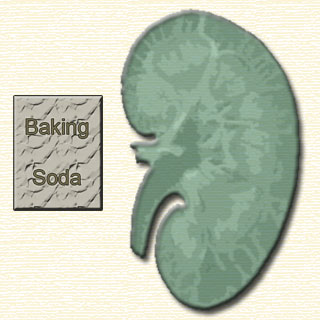
For the purpose of the study, more than 130 patients were evaluated. All of these patients suffering from advanced chronic kidney disease were also noted to have metabolic acidosis (low bicarbonate levels). Along with the usual care, some of these patients were apparently provided with a small daily dose of sodium bicarbonate in tablet form. On the other hand, the remaining patients were believed to only receive their routine normal treatment.
Over a period of one year, it was observed that the kidney function of the patients daily receiving baking soda tablets seemed to be declining at a slower rate than the one’s not provided with these tablets. More so, it was stated that the rate of decline in the kidney function of these patients seemed to be similar to the rate of decline normally occurring with increasing age.
Magdi Yaqoob, MD, Royal London Hospital, says that, “This cheap and simple strategy also improves patients’ nutritional status, and has the potential of translating into significant economic, quality of life, and clinical outcome benefits.â€
Apparently, in only 9% of the patients receiving these sodium bicarbonate tablets, a rapid decline in their kidney function was noticed. As against this, there was a rapid progression of kidney disease in almost 45% of the patients who didn’t receive these tablets. Apart from this it was also noted that the patients in the first group may have a lesser chance of developing end-stage renal disease requiring dialysis.
Yaqoob explains, “This is the first randomized controlled study of its kind. A simple remedy like sodium bicarbonate (baking soda), when used appropriately, can be very effective.â€
More so, in these patients an improvement was also noticed in various measures of their nutrition. Inspite of an increase in the sodium bicarbonate levels of these patients, they didn’t seem to experience any high blood pressure-related issues.
This study has been reported in the Journal of the American Society of Nephrology (JASN).
